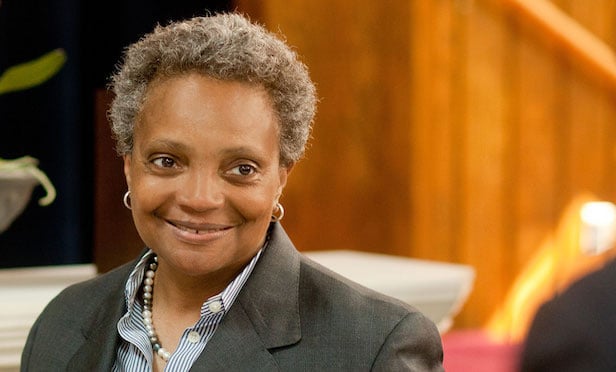CHICAGO—On the same day the city announced the refinancing of $1.3 billion in debt, Chicago Mayor Lori E. Lightfoot unveiled the INVEST South/West plan that will shift $750 million in public and private funds to 10 underinvested neighborhoods on Chicago's South and West Sides.
Through what the city terms is a groundbreaking collaborative by government, businesses, philanthropies, and community leaders, the city will align more than $750 million in already allocated funding to the South and West Sides over the next three years.
In connection with the initiative, BMO Harris Bank announced the first corporate sponsorship—a commitment of $10 million to support community revitalization. INVEST South/West will leverage the city's committed funding and planning efforts to attract additional investment by corporate and philanthropic sponsors.
Mayor Lightfoot said on Monday, "These public-private partnerships are crucial to reverse historic levels of disinvestment and decades of neglect in many neighborhoods, and ultimately build safer and more economically-vibrant corridors throughout our city."
The INVEST South/West initiative will focus planning and funding tools along targeted blocks that have historically served as focal points for pedestrian activity, retail, services, transportation, public spaces and quality-of life amenities for local residents. INVEST South/West neighborhoods will initially include: Auburn Gresham, North Lawndale, Austin, Englewood, Humboldt Park, Quad Communities, New City, Roseland, South Chicago and South Shore.
INVEST South/West will leverage $250 million in existing city business development and infrastructure grant funding by way of DPD's Tax Increment Financing, Small Business Improvement Fund, and Neighborhood Opportunity Fund programs to support neighborhood-based improvement projects to align with local priorities. Those investments will build on more than $500 million in planned infrastructure improvements that will provide transportation, housing and quality of life enhancements that will bolster the vitality of the corridors and surrounding community. This includes area infrastructure projects already allocated, including FastTracks improvements to the CTA Green Line, the Auburn Park Metra Station, and a new track and field facility in Gately Park.
Inter-agency and community coordination will start in all 10 neighborhoods this fall and continue into 2020. A series of community conversations, led by the Department of Planning and Development, will seek to garner input on proposed priority corridors, collect feedback on priority public investments and review metrics for success as tailored community growth plans are created in each community, city officials state.
"If downtown is the heart of the city, neighborhoods are the soul," said DPD Commissioner Maurice Cox. "Under the leadership of Mayor Lightfoot, this unprecedented level of coordination between city departments will reinforce neighborhood centers as destination points for local residents and visitors, especially in terms of economic vitality, jobs and community cohesion."
Local advisory panels comprised of residents, business leaders and city representatives will be formed to identify local needs and goals so that resources and funding can be focused on efforts and programs that will foster community cohesion, vitality and private investment. These improvements could include new and expanded stores, restaurants, community gathering spaces, streetscape improvements, transit upgrades, affordable housing, anchor tenancy from civic and corporate institutions, as well as other enhancements, all based on community input.
The mayor also announced on Monday the city's plans to refinance existing debt, which is expected to generate $200 million in savings, representing nearly 25% of the $838 million Fiscal Year 2020 gap. The city will issue General Obligation and Sales Tax Securitization Corporation bonds to refinance $1.3 billion in outstanding callable City GO and Motor Fuel Tax bonds.
© Touchpoint Markets, All Rights Reserved. Request academic re-use from www.copyright.com. All other uses, submit a request to [email protected]. For more inforrmation visit Asset & Logo Licensing.








